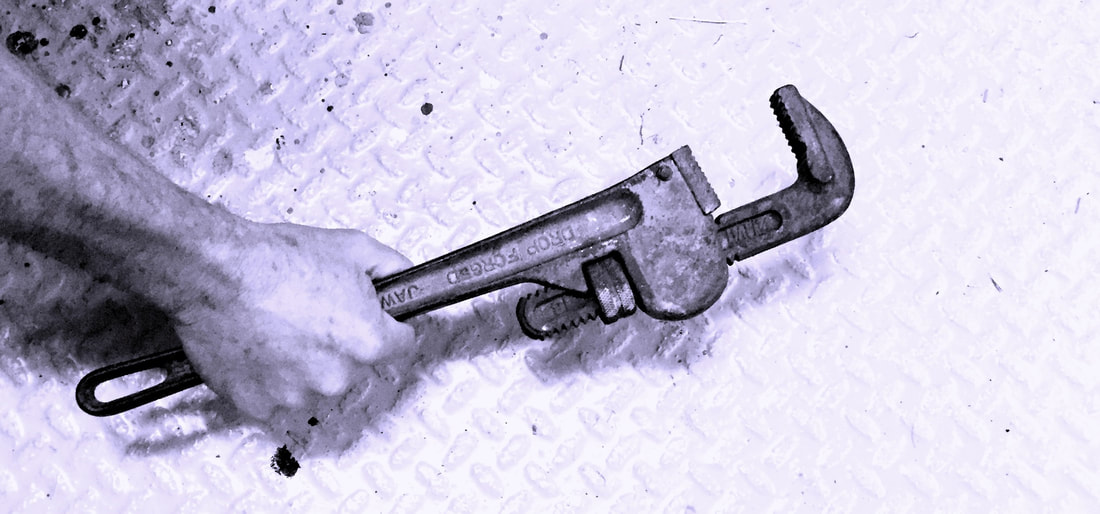|
As with most creative endeavors, there are occasional misconceptions about the art and craft of writing. One is that authors (successful ones, at least… whatever that means) basically sit down and the magical fairy dust flows from their fingers and onto the page. In my observation, good writing is much more about sustained hard work over time and much less about spontaneous bursts of creative genius. I know a number of people I’d classify as good writers. And I make a habit of studying them, their work, and their workflow, trying to make useful correlations. The first of these is that for most of the writing—from most of them—I’d say I rarely see lightning bolts of sheer brilliance on the individual pages of their day-to-day output, especially in early drafts. What I see are well-considered elements (setting, character, theme, plot) that the author cares deeply about, expounded upon in print. Passionately. Imperfectly. Often in a “three steps forward, two steps back” fashion. Which can be painful and slow at times. But in spite of this, the writer has an overall vision in mind for the work, and they keep working away until (1) the story is complete, and (2) everything in the story aligns with their vision for it, to the best of their ability. And the operative word here is work. Another correlation I’ve noticed is that good writers tend to show up every day (for a realistic value of “every”) and put in the work. Sometimes the work goes well, the writing is good, and there is a good amount of it. Sometimes, maybe not so much… for either quality or quantity. (The worst, of course, is when you do a lot of writing and none of it is any good.) But even when the writing isn’t stellar, or when the writing doesn’t come easily and the output is lower than they’d like, they are there—putting in the work. And they’re making progress, even if only a little. Because even a roughly written version of a concept is something. And you need something. Because with something, you can work on it… revise or trim or restructure or expand it. But you can’t do those things with nothing. Which is why the prime job description for being a writer is basically “Show up and do the work.” A third correlation I’ve noticed is the more you show up and do the work, the more often you get the sort of writing you want. Part of this may simply be the benefits of practice—repeated experience leads to increased facility. Part of it may be the creative part of your brain finally getting the idea that it’s going to at least attempt to be creative every working day. And part of it may be self-fulfilling and self-sustaining: you do it regularly and thus get a little better at it, and thus enjoy it a little more, and thus do it more often and get even better, and thus enjoy it even more, and thus… And even when the muse ignores your invitation completely, there are things you can do during your regularly scheduled work hours if actual writing isn’t in the cards. You could work on what I call the Three P’s… Ponder, Plot, and Plan. This doesn’t have to be strict outlining (but it can, of course). It can also be as simple as sitting there with your eyes closed and musing on what you—as a reader who has read up to where you are in the story—would like to see happen next. (See the “What Do I Want to See?” post for more on this.) And then jotting down as much or as little as it takes to capture the ideas such that you’ll recall them when the time comes to write them. You could also go through what you’ve written recently and line edit it—just basic tightening or clarifying. Or even just go back half a dozen chapters and sit down and read it without either hat (writer or editor) perched upon your head. Instead, go through it like you’re reading for pleasure. And sometimes you’ll find that when you get to where you left off, your muse pays a brief visit and rewards you with some worthy ideas. (And even if not, an added bonus of these activities is they also allow you to simply stay in touch with the story, even if you’re not actively adding to it at the moment. This is important because keeping the story in your mind is key in keeping your subconscious involved in creating it.) Think of “showing up, prepared to put in the work” as setting the table for your muse: If you set the table, they will come. Maybe. Or maybe not. But if you don’t, they will NEVER show up. Of that you can be certain. Happy writing… and set an extra plate at the table!
2 Comments
1/6/2018 09:22:51 am
Well stated and well written. I hope it's the result of long hours of painful drafts. Because (mostly) I hate to suffer alone.
Reply
Mark Parsons
1/6/2018 02:55:23 pm
No, I just banged this out while waiting at a red light… ha! :)
Reply
Leave a Reply. |
The Craft and Business of
|

 RSS Feed
RSS Feed